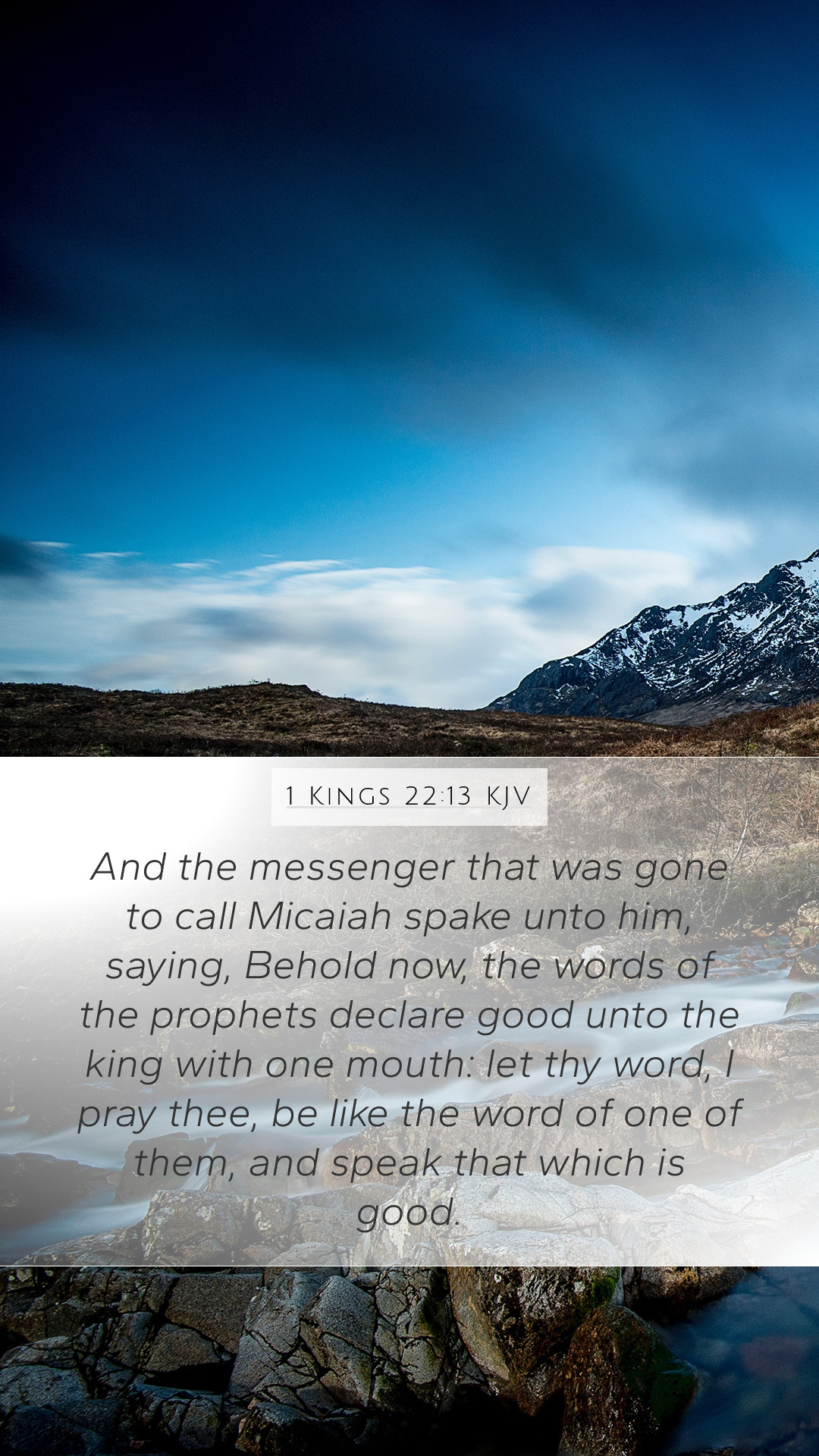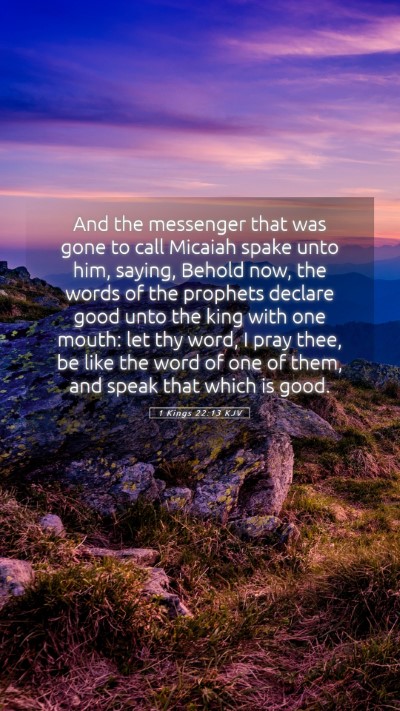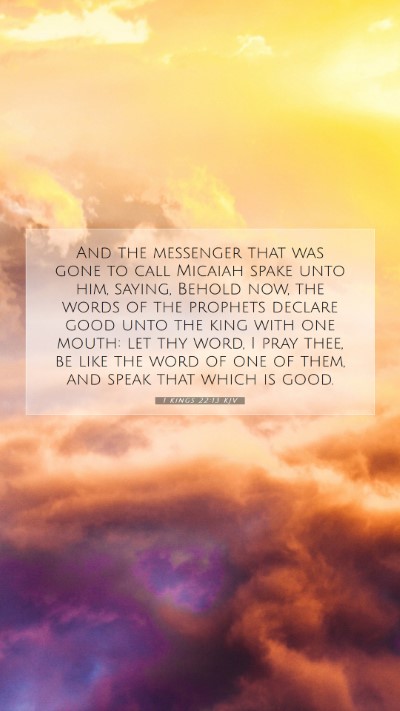Understanding 1 Kings 22:13
The verse 1 Kings 22:13 states:
"And the messenger that was gone to call Micaiah spake unto him, saying, Behold now, the words of the prophets declare good unto the king with one mouth: let thy word, I pray thee, be like the word of one of them, and speak that which is good."
This verse encapsulates a significant moment in the narrative of King Ahab and the prophet Micaiah, drawing attention to the dynamics of prophetic declarations and the influence of popular opinion.
Bible Verse Meanings
1 Kings 22:13 highlights the pressure exerted on Micaiah to conform to the prevailing narrative of the other prophets, suggesting that he should align his message with theirs, which was already favorable to King Ahab.
Insights from Public Domain Commentaries
-
Matthew Henry:
Henry explains that Micaiah's arrival is marked by external pressures to conform to the false prophets. He notes that while the other prophets speak in unison, Micaiah is called to deliver God’s truth, emphasizing the danger of following the majority without discerning divine will.
-
Albert Barnes:
Barnes points out the messenger's attempt to sway Micaiah's prophecy indicates a superficial understanding of God’s word. He elaborates on the contrast between true prophetic insight and the hollow encouragement of the false prophets, urging readers to seek genuine revelation over popularity.
-
Adam Clarke:
Clarke reflects on the implications of Micaiah's predicament. He asserts that this moment illustrates the conflict between truth and convenience, encouraging believers to stand firm in their convictions, regardless of external pressures. Clarke highlights that true prophets often face opposition when their messages challenge the status quo.
Bible Study Insights
In studying 1 Kings 22:13, it becomes evident that understanding Scripture involves recognizing the surrounding context, the nature of prophetic integrity, and the implications of yielding to societal pressures.
Historical Context
The historical backdrop of Ahab's reign displays a kingdom rife with idolatry and false prophecies. The request for Micaiah to align with the false prophets showcases the tension between God's true messengers and the corrupt leaders of Israel.
Application of 1 Kings 22:13
This verse encourages reflection on the integrity of one's message in the face of external pressure. It challenges readers to consider how they might be influenced by societal norms and the importance of adhering to one's convictions.
Significance of Prophetic Voices
The importance of prophetic voices in the Scriptures cannot be overstated. Micaiah's case calls attention to the necessity for discernment in choosing whom to listen to and highlights the consequences of ignoring God’s truth.
Related Bible Cross References
- Jeremiah 14:14: Discusses false prophets and the consequences of their misleading messages.
- 2 Chronicles 18:13: Provides parallel insights into the interaction between Micaiah and the other prophets.
- 1 Kings 22:8: Micaiah's reputation as a true prophet is further illustrated, emphasizing his past counsel to Ahab.
Conclusion
1 Kings 22:13 serves as a compelling reminder of the struggle between truth and conformity. In a time where popular opinion often overshadows divine truth, this verse calls for believers to dig deeper into Scripture and maintain their commitment to God’s word, offering a rich avenue for Bible verse interpretations, understanding, and meaningful application in daily life.


